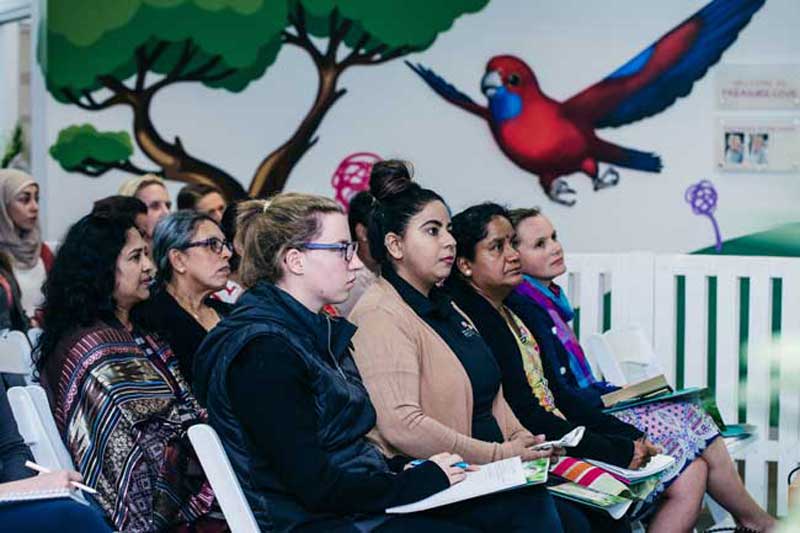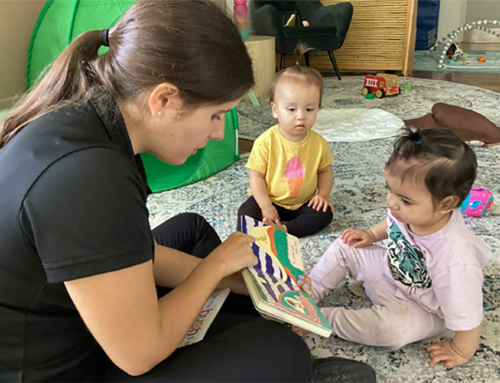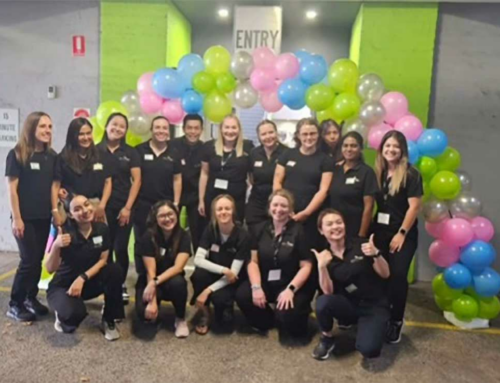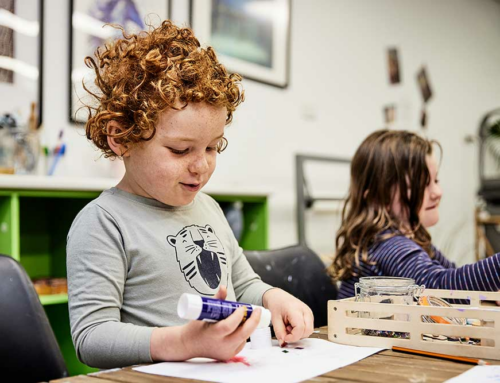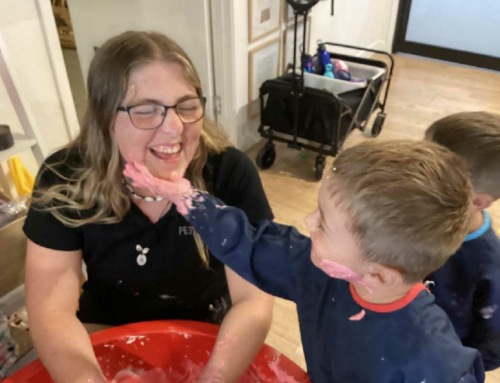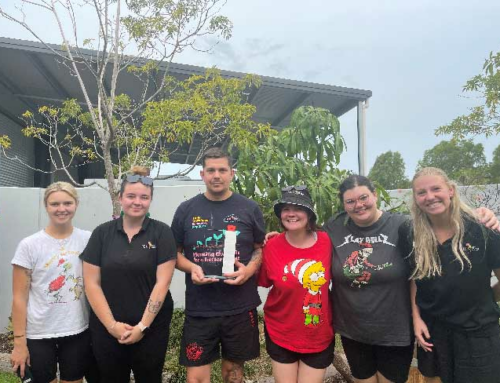Reflective practice in child care helps Educators to approach ongoing challenges, situations and ways of doing things. By engaging in critical reflection, Educators are better informed when it comes to making decisions.
Naomi McLeod on “The Reflexive Educator” in Empowering Early Childhood Educators (Routledge, 2019) believes Educators who engage in reflection can open up new ways of seeing and believing. “It’s a personal awareness and self-examination of what is thought and done” that can result in intentional change.
Being open to ongoing learning and reflective practice is a fundamental part of the Early Years Learning Framework. It links to the National Quality Framework’s support for continuous quality improvement.
Educators are encouraged to explore what happens in their services, why different pedagogical approaches are more effective than others, to look inside one’s own experiences, thoughts and feelings to unpack what works or doesn’t work and how things could be improved.
In this article, we spoke with Danielle Postaj, Centre Director and Educational Leader at Petit Early Learning Journey Elderslie on how her team engages in reflective practice and several strategies and techniques they use to stimulate ideas.

How Elderslie engages in reflective practice
Regular team meetings provide opportunities where Educators engage in reflective practice. These may involve the whole centre or smaller groups. It can be advantageous to hold a regular dedicated meeting for deeper reflective practice separate to those with an administrative focus.
“Our teams have regular reflective meetings in their studios to discuss viewpoints including strategies, process and transitions that pinpoint our strengths, what we need to improve and how we will do it,” says Danielle.
“Conversations are our go-to for this type of reflection because they facilitate rich questioning and multiple perspectives. Working closely with Kelly Goodsir, our team has adopted the approach of ‘notice, recognise, respond and reflect’ within every aspect of our day-to-day practice.”

Benefits of reflective cycles, models and tools
We all use reflection in various ways for different things. It’s easy to fall into the trap of reflecting on what didn’t work, rather than looking at what did and how we can grow from our experiences.
Reflective practise uses various cycles, models and tools. Learning about different techniques and sharing effective reflective practices can help Educators structure their approach as an agent of change.
“In my role as Educational Leader, I use our documentation review throughout the term for individual reflections of each studio. I find it allows for insight into the process, wins and challenges.”
“I complete the review with each studio as part of a collaborative meeting. The document helps us to develop an understanding as to whether more time or one on one mentoring is needed.”
“We also use Kelly Goodsir’s Reflect and Review book. We use the planning cycle as a tool for reflection and a way of thinking:
- Notice – We notice what is happening through conversation.
- Recognise – We recognise if it has been successful, or if it is not working as well as we hoped.
- Respond – We understand if it was working or not and how we are going to respond to it. For example, it may only need a minimal amount of tweaking, or it could require a complete rethink.
- Reflect – After implementing the change, we reflect again and more importantly, at this stage, we reflect with children.”
“Going through this planning cycle gives us a thorough opportunity to acknowledge and reflect on each aspect. Reflecting with children is an incredible way to empower them. It shows they have a voice and that we are listening to it.”
“Recent reflection on the activities in our Treasure Cove Studio raised our awareness as to how they were very busy. Only one child was sleeping. We recognise that older children still need the opportunity to rest and relax.”
“By collaborating and involving the children in our reflective practice on this observation, we came up with the idea to give our Treasure Cove children the choice of an indoor calming yoga session and outdoor play.”

Identifying areas for improvement as a reflective practitioner
As an agent of change, a reflective practitioner observes critical incidents and challenges by taking a step back from the situation to see it through different lenses. An essential characteristic of a reflective practitioner is open-mindedness and a willingness to see differences.
“Reflective practice has helped our team to improve the everyday happenings at our centre. It has also served to get to know and understand how we view each other’s individual beliefs and values and how those perspectives form the basis of our teaching practices.”
“Having Educators that understand pedagogy and curriculum approaches allows us to have different perspectives on our practices. As a result of critical reflection, we are improving every day. Our current strengths lie in our approach to our educational program.”
“I used reflection to identify improvements for linking our documentation together. By reflection on what was working and what wasn’t, I was able to develop a ‘plan’ on Storypark where it holds all the relevant documentation for a child. It has helped our Educators to understand the planning cycle thoroughly.”

An example of deep reflection resulting in change
A recent observation that provoked deep reflection and discussion for the Elderslie centre team was: ‘Group time, but they’re not joining in?’ Danielle immediately responded with the question: “Why do they need to join in?”
“This topic also sparked a meaningful discussion around, ‘What do we see as necessary, and why do we do it?’, as it relates to all that we do. If we do not know why we are doing something, then we should find out. Are group times necessary?”
“Reflecting always raises other questions, such as:
- Why do we do this?
- Is there a policy or guideline that says we have to do it?
- What do our children prefer to be doing if they do not want to join in group activities?
- What does the theory say behind it
- How can we make this time of our day more enjoyable for the children and Educators?”
“Our Educators then went to their studios to investigate the answers and have a reflective discussion on the topic in smaller teams and with the children.”
“They identified that this group time came before lunch. It was complicated because some children wanted to continue to play, while others were starting to get hungry and finding it challenging to participate.”
“The result was to give the children the autonomy and opportunity to do something different with their routine at this time of day. Our centre introduced a progressive lunchtime routine. This progressive routine gives children a choice to either continue playing, join in a small group activity, or to eat their lunch.”
“Overall, this reflexive practice had a successful outcome. Our Educators reflected as a team and looked further into each question to recognise that the topic was much deeper than just having a group time. In the end, the resulting change is also giving children agency and choice over the happenings of their day.”

Reflective practices are a lifelong skill
A reflective practitioner in child care reflects as an individual and as part of a team. Reflective practice helps to identify goals and activities but also their strengths and weaknesses, and how to develop or improve them to provide a better service to support children and families.
“I think it is vital for Educators to use reflection daily. Reflection is the key for adapting, changing, improving and a chance to hone in on successes. Reflecting and understanding the ‘why’ is so essential and drives continuous improvement every day.”
“As Educators, reflective practice allows us to improve our day-to-day practises, sparks our interest and furthers our knowledge, opening doors for contemporary theory.”
“Learning to be reflective rather than reactive is an important lifelong skill. As Educators, by role modelling and demonstrating how to critically reflect and improve situations, our children will learn meaningful ways to approach challenges and find successful solutions.”

Discover a reflective practice at Petit Early Learning Journey
At Petit ELJ our Educators embrace reflective practice while also encouraging a personal reflexive approach. We regularly participate in professional development and use reflection as a daily tool to question and improve our curriculum and learning programs.
Are you searching for a new opportunity or a career change with a child care service that embraces a reflective practice, works collaboratively and uses a shared approach to pedagogy? If you’re genuinely passionate about caring for children and share our values and beliefs, then what are you waiting for? We want to hear from you.
